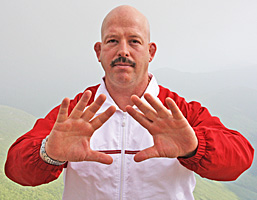Depends upon your point of view.
I say “both.”
UConn, the number 7-seed in the tournament beat 8-seeded Kentucky, 60-54. They are “hands down-hats off” the 2014 NCAA champions.
At the same time, Kentucky beat themselves.
The Wildcats missed 11 free throws. ELEVEN.
If your team only misses ONE – like the mighty Wisconsin team Kentucky beat to reach the finals, it can prove fatal. But ELEVEN?
How can you miss 11 “free” throws in a national championship game?
And this isn’t the first time a John Calipari coached team did this. Back in 2008, when he coached Memphis into the title game, this same sort of scenario happened, giving Kansas the title.
So where’s the breakdown begin? How does something so ugly repeat itself on the national stage?
To chalk it up with words like “it happens” accomplishes nothing. At some point you need to dig a little deeper.
I know a young man who was a tremendous ball player – yet, every time he took the court in a crucial situation, all hell would break loose. The other players would fail to do their job. He did what he was supposed to do – but it seemed like everyone else forgot what game they were playing.
Mistakes galore.
One day, when given the opportunity to coach the player, I told him that we needed to change what happens to the team when he’s given a job to do. We began to work on a mental picture that included not just himself, but the others on the team, doing their job – and the team succeeding.
Guess what happened when we upgraded his mental pictures?
The team stopped screwing up.
Hmmm.
So the question is: Can you bring a previous memory onto the court, the filed, the diamond, the office, the classroom, the home and so on – and have your memory positively or negatively influence the outcome of an endeavor?
I believe you can.
Last night, I believe UConn brought their U-CAN memories into the game.
And I believe it’s within the realm of possibility that Kentucky’s coach brought a haunting memory with him into the game, a memory that took place with a different team, six years ago.
It was the same with Marty Schottenheimer. Everywhere he went, he built a winning football team. He took teams that were awful and made them great.
But when it came time to win a game that really, really mattered – no matter where he was, no matter what team he coached, history repeated itself. His team would make mistakes late in the game that ensured they would lose.
At some point, if you want the trend to discontinue, it might be a good idea to look deeper into the situation. As a coach, is it possible that Schottenheimer brought mental images of “Oh, No” with him into championship games? And is it also possible that Coach Calipari did last night as well?
Or should a coach, player, student, salesperson, entrepreneur, etc. – just say, “it happens” when things get unexplainably familiar?
With Theatre of the Mind, you give yourself a fighting chance. You give yourself a way to rise above the agony of defeat, to change circumstances in your imagination first – and later, in the real world.
And it all begins with Seeing Yourself at Your Best – not at your worst.
Tomorrow, at 9 PM EST, I’m having a free teleseminar for those who’ve already purchased a copy of my NEW program, Maxwell Maltz’ Theatre of the MInd.
If you’ve already ordered the program, just drop me an email and I’ll send you the info for the call.
It’s going to be a great one.
Best,
Matt Furey

